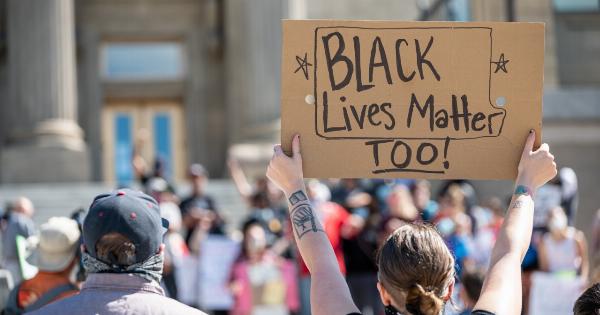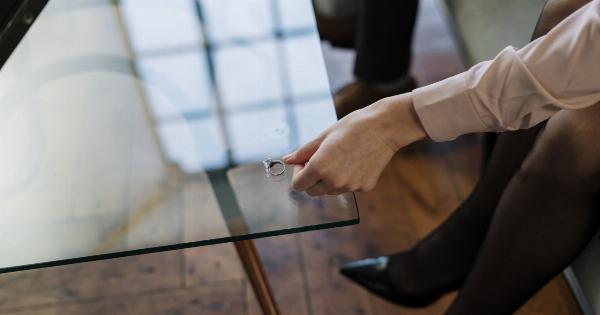When it comes to relationships, men have to protect themselves to stay emotionally healthy and safeguard their well-being.
While relationships require vulnerability, trust, and emotional intimacy, men often face challenges that make it difficult for them to be open and receptive to emotional connection. In this article, we will explore the various ways men protect themselves in relationships and how it impacts their emotional and psychological well-being.
1. Emotional suppression
Men are often conditioned to suppress their emotions and show strength and resilience to the world. The pressure to appear strong and unbreakable can lead to emotional suppression, which is a harmful practice.
When men suppress their feelings, they may struggle to communicate their needs and desires in a relationship, leading to conflict and misunderstandings. Emotional suppression can lead to a lack of emotional intimacy in a relationship, making it difficult for men to form a deep connection with their partner.
2. Avoidance
Men may also protect themselves in relationships by avoiding difficult conversations or uncomfortable situations. Avoidance can be a temporary solution, but it does not resolve the underlying issues that may be causing the distress.
When men avoid dealing with issues or communicating their feelings, it can lead to resentment, frustration, and disconnection in the relationship. Avoidance can also prevent men from developing the skills necessary for effective communication and conflict resolution.
3. Control
In some cases, men may protect themselves in a relationship by exerting control over their partner. This can take the form of emotional manipulation, coercion, or physical violence.
Control is a maladaptive way of handling insecurities or fears in a relationship, and it can be harmful to both the men and their partners. When men control their partners, they limit their freedom, autonomy, and ability to express themselves, leading to a power imbalance in the relationship.
4. Distancing
Another way men protect themselves in relationships is by creating distance between themselves and their partner. This can take the form of physical or emotional distancing, where men withdraw from the relationship and become less engaged.
While distancing may be protective in some cases, it can also lead to a lack of emotional connection and intimacy in the relationship. Distancing can also be a sign of deeper unresolved issues that require attention and support.
5. Self-sufficiency
Men may also protect themselves in relationships by relying solely on themselves for emotional support and validation. This can lead to a lack of trust in their partner and the relationship, leading to emotional detachment and disconnection.
Self-sufficiency can also lead to a lack of vulnerability and openness in the relationship, making it difficult for men to form a deep connection with their partner.
6. Seeking external validation
Men may also protect themselves in relationships by seeking validation and affirmation from sources outside their relationship. This can take the form of social media, friends, or other romantic partners.
Seeking validation from external sources can create a sense of safety and security, but it can also lead to emotional infidelity and a lack of intimacy in the relationship. Seeking validation from external sources can also be a barrier to effective communication and conflict resolution in the relationship.
7. Transparency
Another way men protect themselves in relationships is by being transparent and honest with their partner. Transparency can help build trust and intimacy in the relationship and create a safe space for vulnerability and emotional connection.
When men are open and honest about their needs, desires, and fears, they can work together with their partner to address the underlying issues and build a strong, healthy relationship.
8. Self-reflection
Men may also protect themselves in relationships by engaging in self-reflection and self-awareness.
This can involve exploring their own emotional needs and vulnerabilities, acknowledging their own insecurities and fears, and identifying their own patterns of behavior. Self-reflection can help men better understand themselves and their partner, leading to a deeper level of emotional connection and intimacy in the relationship.
9. Seeking professional help
In some cases, men may need to seek professional help to protect themselves in relationships. This can involve working with a therapist or counselor to address unresolved emotional issues or past traumas that may be impacting the relationship.
Seeking professional help can provide men with the resources and support they need to work through difficult emotional challenges, leading to a greater sense of well-being and fulfillment in the relationship.
10. Healthy boundaries
Finally, men may protect themselves in relationships by setting and maintaining healthy boundaries. This can involve establishing clear expectations and communication around what is acceptable and what is not in the relationship.
Setting healthy boundaries can create a sense of safety and security and can prevent men from being taken advantage of or mistreated in the relationship.
Conclusion
Men protect themselves in relationships in many different ways. While some of these ways may be harmful and maladaptive, others may be healthy and constructive.
Understanding how men protect themselves in relationships can help partners create a safe and secure environment for emotional intimacy and connection. By acknowledging men’s emotional needs and vulnerabilities, partners can work together to build strong, fulfilling relationships that support mutual growth and well-being.





























